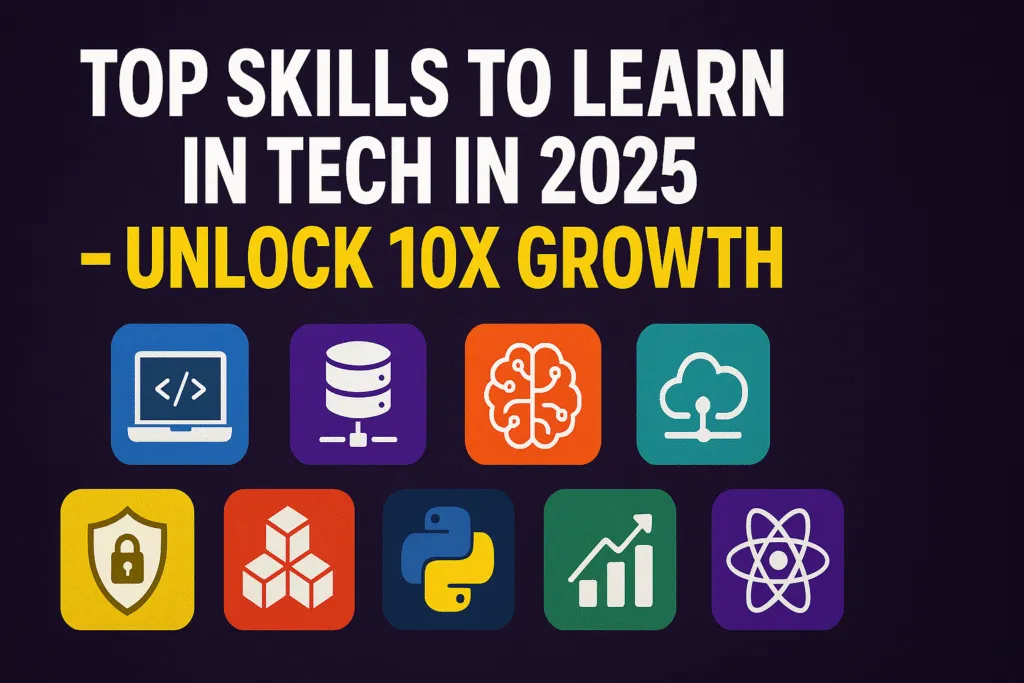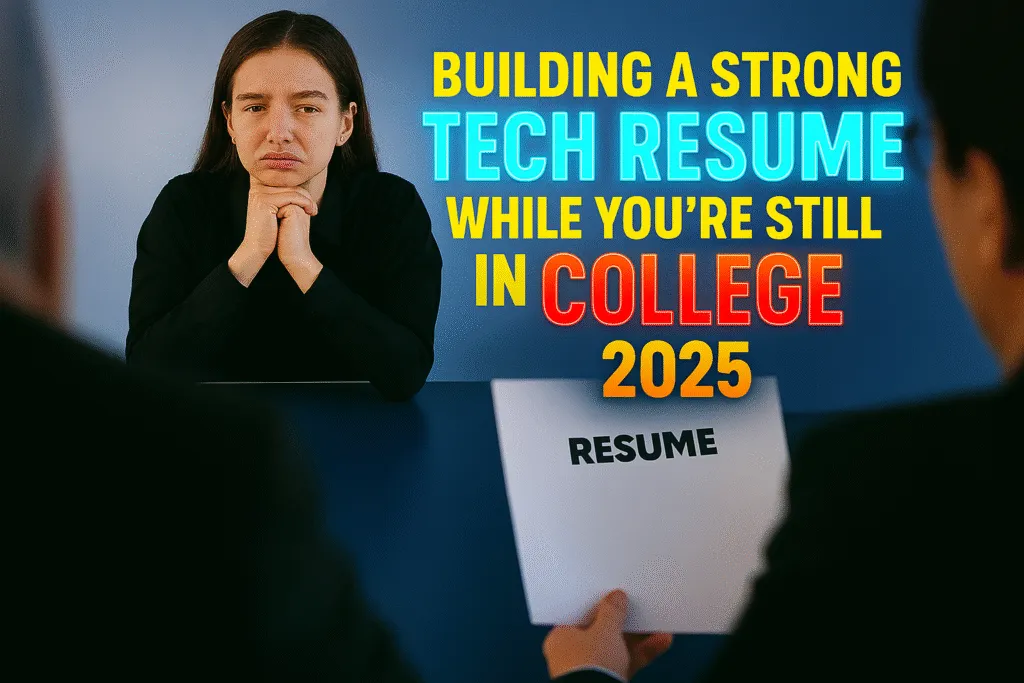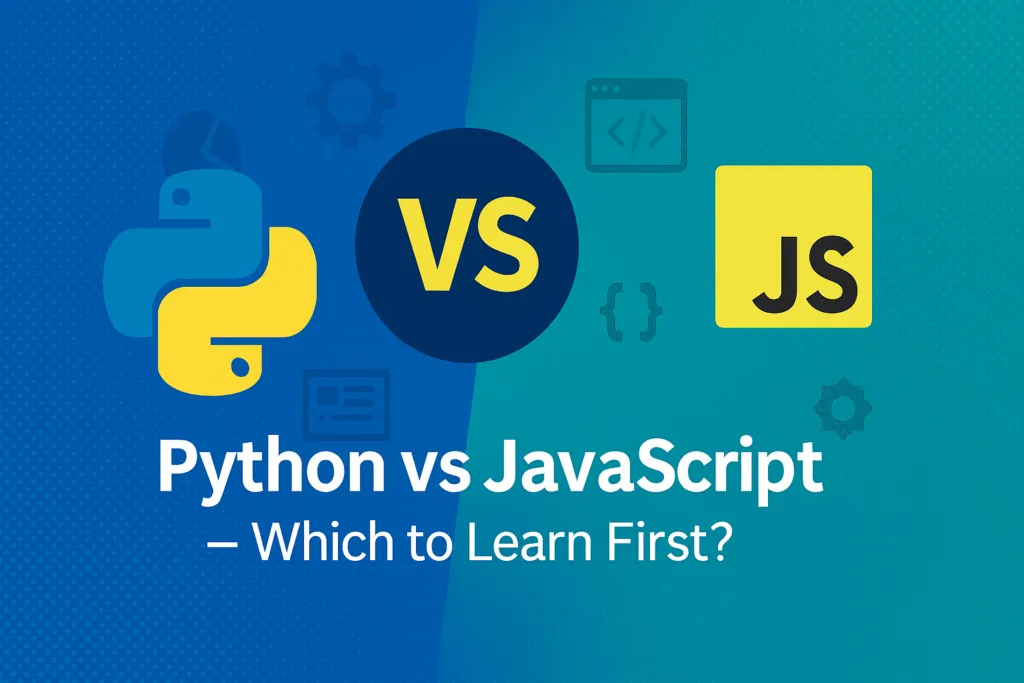Introduction
The tech industry has changed dramatically in the last decade. Today, starting a career without a degree is not just possible—it’s becoming more common every year. Companies are increasingly focused on skills, real-world experience, and the ability to solve problems over traditional qualifications. As a tech blogger who’s spent years tracking industry trends, I can confidently say that your ability to build a successful tech career without a degree is stronger than ever.
Whether you’re passionate about web development, data analysis, cybersecurity, or UI/UX design, what matters most is your drive to learn and apply new technologies. Tech is a results-driven field. If you can code, troubleshoot, design, or analyze data well, your background takes a back seat. In fact, many hiring managers now prefer candidates with strong portfolios over those with just academic credentials.
A career without a degree may require more self-discipline and strategic planning, but it also offers more freedom and flexibility. You’re not bound by a fixed curriculum—you choose what to learn, how to learn it, and how fast you want to grow. From free online courses to open-source projects and freelance gigs, the tools to kickstart your journey are already within reach.
This blog will guide you step-by-step on how to build a career without a degree in tech—from choosing the right path to landing your first job. If you’re ready to break into tech with nothing but determination and curiosity, you’re already halfway there.
Why You Don’t Need a Degree for a Tech Career
A career without a degree in tech isn’t just a bold idea—it’s a proven reality for thousands around the world. The tech industry thrives on innovation, adaptability, and practical skills, not just classroom learning. Many of today’s top tech professionals didn’t come from a computer science background. Instead, they taught themselves, built real-world projects, and demonstrated their value through results.
What sets tech apart is its accessibility. Unlike medicine or law, where formal education is mandatory, tech welcomes anyone who can prove their skills. If you can write clean code, solve real problems, or design intuitive interfaces, companies will notice—degree or not. In fact, major companies like Google, Apple, and IBM have openly stated that a college degree is no longer a requirement for many roles.
Another reason why a career without a degree is possible in tech is the abundance of self-learning resources. Platforms like freeCodeCamp, Coursera, and GitHub offer everything you need to get started, often for free. You can learn at your own pace, build a portfolio, and even contribute to open-source projects—all of which are highly valued in the tech hiring process.
Employers care about what you can do, not where you learned it. If you can walk into an interview with a strong GitHub profile, a solid portfolio, and the ability to communicate your thought process, you’re already ahead of many degree-holders.
In short, a degree might be helpful, but it’s not essential. What truly matters is your commitment to learning and your ability to deliver real value. A tech career without a degree is no longer an exception—it’s quickly becoming the norm.
Top In-Demand Tech Roles Without a Degree
Building a career without a degree in tech doesn’t mean settling for less. In fact, many high-paying and in-demand roles are open to self-taught professionals who can prove their skills. If you’re ready to put in the effort and build a solid portfolio, the following tech roles can launch your career without a degree.
1. Web Developer
Web development is one of the most accessible entry points into tech. With skills in HTML, CSS, JavaScript, and frameworks like React or Vue, you can start freelancing, build client websites, or land a full-time role—all without a formal degree.
2. Data Analyst
Data-driven decision-making is a core part of every business today. If you enjoy working with numbers and patterns, learning Excel, SQL, Python, and data visualization tools can lead you into this growing field. A career without a degree in data analysis is very achievable with hands-on practice.
3. UI/UX Designer
Tech needs creatives too. If you have an eye for design and user experience, UI/UX design could be your path. Tools like Figma, Adobe XD, and Sketch are key, along with a strong portfolio that shows your thought process and user-centric thinking.
4. Cybersecurity Analyst
Cybersecurity is booming, and companies are actively seeking professionals who can protect their systems. You can learn ethical hacking, network security, and incident response through online platforms and certifications—no degree required.
5. QA Tester (Quality Assurance)
If you’re detail-oriented and love breaking things to make them better, QA testing is a great way to enter tech. Many testers work their way up from internships or freelance projects into full-time positions.
6. Technical Support Specialist
A great starting point for beginners, this role involves solving tech issues and helping users. Strong communication skills and a basic understanding of systems and software can help you grow into more advanced roles over time.
These roles prove that a thriving tech career without a degree is absolutely within reach—as long as you’re willing to learn, adapt, and put your skills to the test.
Step-by-Step Guide to Enter Tech Without a Degree
Starting a career without a degree in tech might seem challenging at first, but with the right roadmap, it’s entirely doable. Here’s a clear, practical step-by-step guide to help you break into the tech world without spending years in college.
Step 1: Choose Your Path
Start by identifying which tech field excites you the most—web development, data science, cybersecurity, design, or something else. Explore each one briefly through free resources or YouTube videos before committing to a direction.
Step 2: Learn the Fundamentals
Once you’ve chosen your path, focus on learning the basics. Use platforms like freeCodeCamp, Coursera, Udemy, or Khan Academy. Follow a structured course and aim to complete hands-on exercises daily. This is where your foundation is built, so stay consistent.
Step 3: Practice Through Real Projects
The best way to prove your skills in a career without a degree is by building real-world projects. Create websites, analyze data sets, design mock apps, or build simple tools. This hands-on experience not only improves your skills but also becomes a powerful part of your portfolio.
Step 4: Build a Strong Portfolio
A well-organized portfolio is your digital resume. Host your work on GitHub or create a personal website to showcase your projects, write case studies, and explain your problem-solving approach. Employers care about what you can do—your portfolio is proof.
Step 5: Get Involved in the Community
Join online tech communities on Reddit, LinkedIn, or Discord. Participate in discussions, ask questions, and connect with others. Being active in the community often leads to mentorship, referrals, and freelance opportunities.
Step 6: Apply for Internships or Freelance Work
Don’t wait to be perfect. Start applying for internships, junior roles, or freelance gigs as soon as you’ve built 2–3 solid projects. Even small jobs can build experience and credibility.
Step 7: Keep Learning and Stay Updated
Tech changes fast. Continue learning, keep up with industry trends, and refine your skills. A career without a degree in tech demands lifelong learning—but it also rewards it richly.
By following this step-by-step path with focus and discipline, you’ll be well on your way to a successful tech career—degree or not.
Best Learning Platforms & Resources for a Career Without a Degree
One of the biggest advantages of pursuing a career without a degree in tech is the abundance of accessible learning platforms. Whether you’re interested in coding, design, data, or cybersecurity, you’ll find a wide range of resources—many of them free or affordable—to help you build skills from scratch.
1. freeCodeCamp
Ideal for complete beginners, freeCodeCamp offers hands-on coding challenges and full certifications in web development, data science, and more. Their project-based approach helps you build a real portfolio as you learn.
2. Coursera
Coursera partners with top universities and tech companies to provide high-quality courses on topics like Python, machine learning, and system design. You can audit most courses for free, or pay for a certificate to showcase on LinkedIn.
3. YouTube
Don’t underestimate YouTube—it’s a goldmine for self-learners. Channels like Traversy Media, The Net Ninja, and Tech With Tim offer beginner-to-advanced tutorials on a wide variety of tech skills. It’s perfect for visual learners on a budget.
4. Udemy
Udemy offers thousands of affordable tech courses with lifetime access. Whether you’re learning full-stack development, UI/UX, or ethical hacking, you can find structured content that suits your pace and style.
5. GitHub
GitHub is not just for hosting code—it’s where you learn by doing. Explore open-source projects, study other developers’ work, and contribute when you feel ready. It’s a key platform for anyone building a tech career without a degree.
6. Khan Academy
For foundational knowledge in computer science and math, Khan Academy is a reliable free resource. It’s especially helpful if you’re building the basics needed for data-related roles.
7. LinkedIn Learning
If you’re already on LinkedIn, their learning platform is packed with short, targeted courses on software tools, frameworks, and professional development—all great additions to your resume.
These platforms prove that starting a career without a degree is more accessible than ever. What you need isn’t expensive tuition—it’s discipline, curiosity, and the right resources.
How to Build a Strong Portfolio for a Career Without a Degree
When you’re aiming for a career without a degree in tech, your portfolio becomes your most powerful tool. It’s the proof that you have real skills, not just theoretical knowledge. A well-crafted portfolio can often speak louder than any resume, especially when you’re self-taught or coming from a non-traditional background.
Start with Real Projects
Begin by building real-world projects based on what you’re learning. If you’re into web development, create a personal blog, a to-do app, or a small e-commerce site. For data analysis, work on public datasets from platforms like Kaggle or Data.gov. In UI/UX design, create redesigns of popular apps or design your own app ideas. The goal is to show practical application of your skills.
Keep It Simple but Impactful
Don’t overload your portfolio with every project you’ve ever done. Focus on 3–5 strong, polished examples that showcase different aspects of your ability. Each project should have a clear purpose, clean code or visuals, and a short write-up explaining the problem, your approach, and the results.
Use GitHub and a Personal Website
GitHub is essential for developers. Upload your code there and keep your repos organized and well-documented. A personal website (built by you, if possible) acts as your central hub—it should include your portfolio, about section, resume, and contact info.
Tell Your Story
Include brief case studies or blog posts for each project. Explain the tools you used, the challenges you faced, and what you learned. This shows that you not only build things but also understand the “why” behind your decisions.
Update It Regularly
A stagnant portfolio doesn’t reflect growth. As you learn new skills, add fresh projects and remove outdated ones. This shows employers that you’re committed to continuous learning—an essential trait for anyone pursuing a career without a degree.
Your portfolio is your proof of work. Treat it like a living resume and invest time into making it clean, professional, and uniquely yours.
Networking & Job Search Tips for a Career Without a Degree
When you’re building a career without a degree in tech, your skills are important—but your network can make all the difference. Knowing where to show up, who to connect with, and how to present yourself can fast-track your journey to landing that first job or freelance gig.
Start with LinkedIn
Create a professional LinkedIn profile that clearly highlights your skills, portfolio, and the tech roles you’re targeting. Even if you’re still learning, share your journey—project updates, what you’re building, or lessons you’ve learned. This shows consistency and attracts like-minded people (and recruiters).
Engage in Online Tech Communities
Join tech-focused Discord servers, Reddit communities like r/learnprogramming, or forums like Stack Overflow. Ask questions, contribute to discussions, and help others when you can. These spaces are great for learning and often lead to organic networking.
Attend Local or Virtual Meetups
Check platforms like Meetup.com or Eventbrite for tech events in your area or online. Webinars, hackathons, and coding bootcamp demos are great opportunities to meet industry professionals, mentors, and potential employers—even without a formal background.
Reach Out for Informational Interviews
Message professionals in your target role and ask for 10–15 minutes of their time to understand how they got started. Most people are happy to share advice. These conversations can turn into mentorships or job referrals.
Apply Smart, Not Just Hard
Don’t spray your resume everywhere. Tailor each application to the company and the role. Highlight your portfolio, GitHub projects, and willingness to learn. Emphasize the skills that matter most to the job—especially if you’re pursuing a career without a degree.
Start Small If Needed
Freelance projects, internships, and even volunteer tech work can build credibility. Platforms like Upwork, Fiverr, and Toptal can help you get started and build experience that counts.
In tech, your network is your net worth. Combine skill-building with smart relationship-building, and your career without a degree will have a strong, sustainable foundation.
Success Stories That Prove a Career Without a Degree Is Possible
One of the most inspiring things about the tech world is how many successful people have built a thriving career without a degree. These stories aren’t just motivational—they’re proof that skill, persistence, and passion often matter more than formal education.
1. Kevin (Self-Taught Web Developer)
Kevin started learning to code from YouTube tutorials while working a retail job. He built small websites for local businesses and documented every step on GitHub. Within a year, his portfolio landed him a junior developer role at a startup. Today, he’s a front-end engineer working remotely and mentoring beginners who are following the same path.
2. Priya (Data Analyst Without a CS Background)
Coming from a finance background, Priya transitioned into data analytics by learning Excel, SQL, and Python through Coursera and freeCodeCamp. She worked on real-world datasets, built visual dashboards, and shared her work on LinkedIn. Her visibility led to a full-time role at a fintech company—no degree required.
3. Ahmed (UI/UX Designer with No Design Degree)
Ahmed always loved design but couldn’t afford college. He learned UI/UX through free resources like Figma tutorials and design breakdowns on Medium. He built a portfolio by redesigning existing apps and volunteering for nonprofit projects. Eventually, a tech company hired him based on his portfolio alone.
4. Sara (Cybersecurity Analyst from Scratch)
Sara’s interest in cybersecurity started with ethical hacking videos online. She pursued certifications like CompTIA Security+ and engaged in Capture the Flag (CTF) challenges. Her dedication and growing online presence helped her land an entry-level cybersecurity role—all without a computer science degree.
These real-life examples show that a career without a degree in tech isn’t a compromise—it’s a different path with just as much potential. If they can do it, so can you—with commitment, curiosity, and the right resources.
Common Challenges & How to Overcome Them in a Career Without a Degree
Choosing to pursue a career without a degree in tech is a bold move—and like any unconventional path, it comes with its own set of challenges. But the good news is, every obstacle can be overcome with the right mindset and strategy. Here are some common hurdles and how to navigate them.
1. Self-Doubt and Imposter Syndrome
When you’re self-taught, it’s easy to feel like you don’t belong—especially when surrounded by degree-holders or experienced professionals. The key is to remember that many people in tech, even senior developers, struggle with imposter syndrome. Focus on your progress, not perfection. Track your wins, no matter how small, and stay consistent.
2. Information Overload
The internet offers endless tutorials, courses, and opinions. While that’s a gift, it can also be overwhelming. To avoid getting stuck, choose one trusted learning path and stick to it. Don’t try to learn everything at once—master the basics first, then build from there.
3. Lack of Structured Learning
Without a college syllabus, it’s easy to get lost. Create your own curriculum. Follow a clear roadmap (like “Web Developer Roadmap 2025” or “Data Analyst Roadmap”), set weekly goals, and build real projects to apply what you’ve learned. Structure leads to momentum.
4. Difficulty Getting First Job
This is a common hurdle for anyone—degree or not. The trick is to build a strong portfolio, contribute to open-source, and leverage freelance platforms or internships. Networking also plays a huge role. Reach out to people in the industry, attend events, and don’t hesitate to ask for referrals.
5. Staying Motivated Alone
Learning in isolation can drain your energy. Join tech communities, attend virtual meetups, and follow other self-taught learners on platforms like LinkedIn or Twitter. Surrounding yourself with like-minded individuals can help you stay inspired and accountable.
Every challenge on this journey is an opportunity to grow. If you stay consistent, stay curious, and believe in your ability to improve, your tech career without a degree will become not just possible—but powerful.
Conclusion
Starting a career without a degree in tech may feel unconventional, but it’s more achievable today than ever before. The industry values skill, passion, and real-world problem-solving far more than a certificate on paper. From coding and design to data analysis and cybersecurity, there are countless paths you can take—all accessible with the right mindset and resources.
You don’t need a formal classroom to prove your worth. What you need is commitment, consistency, and the courage to learn by doing. Build projects, join communities, showcase your work, and never stop improving. Your journey might not follow the traditional route, but that’s exactly what can make your story stand out.
Thousands have built a thriving tech career without a degree—and you can too. If you’re willing to put in the effort and stay focused on your goals, the opportunities are wide open. The tech world doesn’t care where you started—it cares what you can build.
Also Read: Quantum Mechanics 2025: No-Fluff, Game-Changing Basic.
FAQs: Starting a Career Without a Degree in Tech
1. Can I really get a tech job without a degree?
Yes, absolutely. Many companies today hire based on skills, not formal education. A strong portfolio, hands-on experience, and a willingness to learn can be more valuable than a degree.
2. How long does it take to start a tech career without a degree?
It depends on your learning pace and the path you choose. On average, it can take anywhere from 6 to 12 months of consistent learning and practice to become job-ready for entry-level roles.
3. What are the best tech fields to enter without a degree?
Web development, UI/UX design, data analysis, cybersecurity, QA testing, and tech support are all fields where self-taught professionals often succeed without formal degrees.
4. Do I need certifications to get hired?
Certifications can help, especially in fields like cybersecurity or cloud computing, but they’re not mandatory. Real-world projects and a strong portfolio usually carry more weight.
5. How do I convince employers to hire me without a degree?
Let your work speak for you. Build and showcase real projects, contribute to open-source, and write about your learning journey. Confidence, communication skills, and a solid portfolio can often override degree requirements.
6. Is freelancing a good way to start my tech career?
Yes. Freelancing helps you gain real-world experience, build a client base, and earn while you learn. It’s a great stepping stone into the industry.
7. Can I apply to big tech companies without a degree?
Yes. Companies like Google, Apple, IBM, and Microsoft have all hired self-taught developers. If you have the skills, the doors are open—degree or not.
8. How do I stay motivated during self-learning?
Set clear goals, track your progress, join online communities, and celebrate small wins. Surround yourself with others on the same journey to stay inspired and accountable.


















